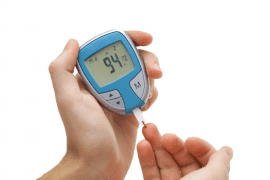
Annually, the world generates 2.01 billion tonnes of municipal solid waste. This figure is set to double by 2050, reaching 3.40 billion tonnes, surpassing population growth.
Solid waste management is a global concern that impacts everyone. Inadequate waste handling leads to pollution in oceans and blockages in drainage systems, causing floods. It also results in disease transmission, respiratory issues due to waste burning, harm to unsuspecting animals, and hinders economic development, including tourism.
In this blog, we will delve into the intricate health risks posed by the rising tide of urban waste. We’ll also explore how effective waste management solutions, such as skip bin usage, can play a pivotal role in addressing these issues.
Health Risks Associated with Waste Management
1. Exposure to Hazardous Materials
Inadequate waste management can lead to exposure to hazardous materials. When waste is not properly segregated and disposed of, it may contain chemicals, bio-waste, or other dangerous substances. People coming into contact with these materials can suffer health consequences ranging from skin irritation to more severe conditions like poisoning or respiratory issues.
2. Disease Transmission
Improper waste disposal can create breeding grounds for disease vectors like rats, flies, and mosquitoes. These pests can transmit diseases to humans, leading to health risks such as malaria, dengue fever, or leptospirosis. Accumulated waste also attracts rodents and stray animals, which can carry diseases that pose threats to public health.
3. Air Pollution
Open burning of waste, a common practice in some areas, releases harmful pollutants into the air. These pollutants include particulate matter and toxic gases that can be inhaled, leading to respiratory problems, cardiovascular issues, and exacerbating existing health conditions like asthma. Proper waste management, including skip bin usage, helps reduce air pollution by preventing open burning.
4. Water Contamination
Improperly disposed waste can contaminate water sources, including groundwater and surface water bodies. This contamination can lead to waterborne diseases such as cholera and dysentery when people consume contaminated water. Contaminated water also poses risks to aquatic ecosystems and can harm marine life, affecting both environmental and human health.
5. Physical Injuries
Accidents during waste handling are a significant health risk. When waste is not properly contained, sharp objects, broken glass, or hazardous materials can cause injuries to waste collectors, scavengers, or even bystanders. These injuries can range from minor cuts and abrasions to more severe wounds, posing a threat to physical well-being.
How Does Skip Bin Usage Help Reduce Such Health Risks?
Skip bins are large, sturdy containers designed for efficient waste collection and disposal. They come in various sizes to accommodate different types of waste, making them a versatile and valuable tool in waste management. Skip bin hire is a service that provides these containers for temporary use, allowing individuals and businesses to dispose of their waste responsibly.
- Skip bins offer secure and enclosed storage for waste, preventing hazardous materials from being exposed to the environment and individuals.
- By containing waste and preventing pest infestations, skip bins reduce the risk of disease transmission.
- By providing a designated space for waste, skip bins help reduce harmful air pollutants, contributing to improved air quality and fewer respiratory issues.
- Skip bins allow for the separation of different types of waste, including hazardous materials. This segregation ensures that hazardous waste is handled separately and disposed of safely.
- Skip bins are designed with safety in mind, featuring sturdy construction and secure lids. This minimizes the risk of accidents during waste handling.
Conclusion
In the face of escalating health risks associated with poor waste management, skip bin usage emerges as a vital solution to safeguard communities and the environment. The simple act of responsible waste disposal through skip bin usage can have a profound impact on public health and well-being, contributing to cleaner, safer, and healthier communities for all. Embracing this solution is not just a matter of convenience but a commitment to a sustainable and resilient future.



